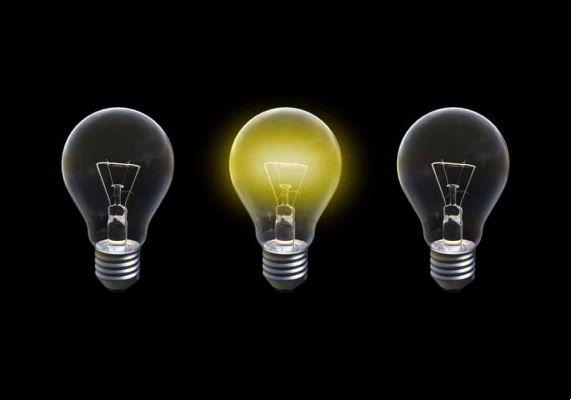Have you ever been thinking about a question or a problem and suddenly found an answer or a solution to it? How did you feel? As if your whole body is filled with excitement and fulfillment, isn't it? This feeling is called an epiphany. But what is epiphany?
A great revelation or the understanding of a new perception about life or about something is the main definition of epiphany. Maybe you've already had this experience and didn't know what to name it. Or he heard a person say “Eureka!”, an exclamation first used by Archimedes of Syracuse, a Greek scientist, when he unraveled a difficult dilemma.
Although the main meaning of epiphany is the one presented above, it is possible to identify other applications of this concept that go beyond a personal experience or sensation. Find out more about it below!

What is Epiphany in the Bible?
The word “epiphany” comes from the Greek language, being a variation of the word “epiphaneia”. The meaning of the expression can be translated as apparition or manifestation, a definition that is closely related to the meaning of Epiphany in the Bible. Watch!
According to Christianity, Epiphany, with the first letter capitalized, is the name of the first appearance of Jesus Christ to the wise men, who came to visit and present Him shortly after His birth. This event would have taken place on January 6, Three Kings Day, which is also celebrated with the name Epiphany.
Thus, according to the Bible, Epiphany is the first appearance of Jesus Christ, in addition to being the name of a religious festival. With the popularization of this term, “epiphany” came to refer to any kind of thought that resulted in an inspiration or understanding of something, as seen above.
What is epiphany in literature?
The concept of epiphany is not present only in the Bible or in the expression of a Greek scientist. In literature it is also possible to identify what it is like to have an epiphany, especially when the text in question refers to a stream of consciousness.
The writer Clarice Lispector is known for writing works that present streams of consciousness. An example of this is the book “The Passion According to GH”, which addresses a series of thoughts and revelations that a woman has after deciding to clean the room of the maid she had.
Epiphany in literature manifests itself from the moment the person who is writing manages to translate, through words, a concept or a sensation that would only make sense to him or herself. If the reading public is able to perfectly understand the subject being narrated, you can have an example of what it's like to have an epiphany. In another sense, a character in a story may have experienced a major revelation at some point, embodying the concept of epiphany.

How do you have an epiphany?
If at this point all you want is to have an epiphany, to have even more ownership when talking about this topic, check out the main ways to have an epiphany!
1) Study what interests you
Since epiphany is translated as understanding about something, studying is a great way to achieve it. By studying and learning new information about subjects that interest you, it is possible to investigate issues that you did not deeply understand. Thus, you will have an epiphany when you learn more about what until then was just a curiosity.
2) Practice meditation
Meditation can be used as a relaxation technique, but it is primarily a practice that aims to promote self-understanding or sharpen our attention to the present moment. With meditation it is possible to experience an epiphany about yourself, understanding issues that you didn't even imagine existed within you. Reflect on who you are with meditation and have a powerful epiphany!
3) Observe the world around you
Have you ever stopped to admire and reflect on everything that surrounds you? Nature, people, modern buildings, animals and everything else? An exercise like this can stimulate your attention to details that you wouldn't see if you weren't focused on finding them. If you've heard that "the devil lives in the details", know that epiphany is there too! Small daily observations can lead to great revelations about your environment.
4) Direct your attention
Attention and focus are two concepts that go together. To pay attention to one thing at a time, you need to focus, for example. When you're doing an activity, do you get distracted or do you focus on what you're doing? Directing your attention to the now is the simplest way to have an epiphany. Great revelations can come from simple everyday events, when they are not performed automatically or inattentively.

You may also like
- Find out if you've ever had an epiphany with examples of this phenomenon
- Practice meditation and put your self-knowledge up to date
- See how mindfulness practice can benefit you
5) Talk to other people
Talking to other people is a way to find different perspectives on the same issues, whatever the topic being discussed. You will get in touch with other realities and exercise your empathy and understanding to broaden your knowledge of how people feel or think about something. In addition, you will be able to broadcast your way of seeing the world! The epiphany can happen to you and whoever you are talking to.
Put the tips into action and get ready to live an experience that can cause a revolution inside you and in your way of looking at the world!

























